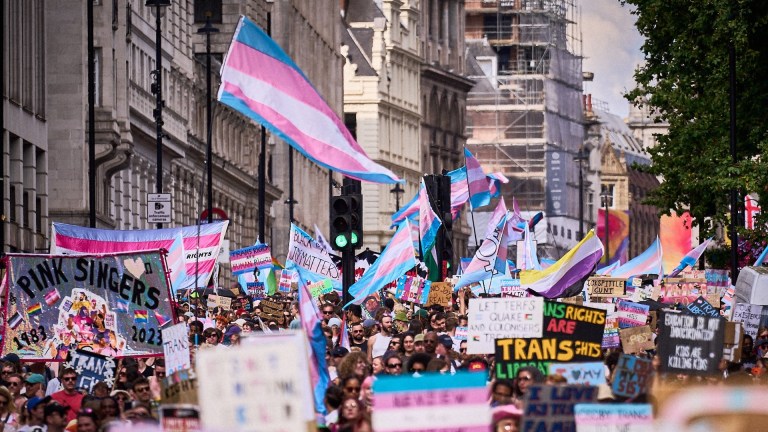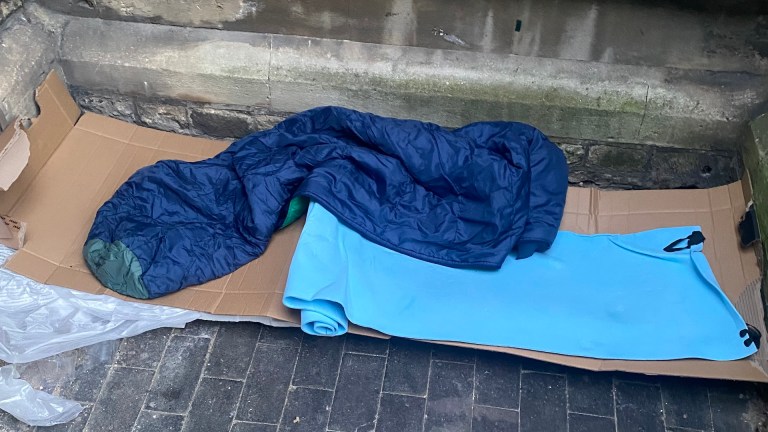“It all sounds good: ’We’re going to give out all this £150 to be knocked off your electric bill.’ But I’ve got no way to benefit because presumably the electrics are all in the landlord’s name. It’s good in principle but maybe it needs to be looked at in some way.”
Retired oil worker Turner started selling the Big Issue at Kings Chase in Bristol after arriving back in the UK last December.
He ended up sleeping rough before finally being housed – an experience he described as “very challenging”.
Moving indoors in the UK for the first time means it is his first experience of the warm home discount.
The one-off £150 discount is paid directly to electricity suppliers. People on pre-paid meters are still eligible for the discount and can obtain a voucher from their electricity supplier. It is offered to pensioners who are on benefits or those who are identified as having a low income but high energy costs.
Turner is also unable to use vouchers from the Big Issue to help with his energy bills. A total of £21,000 of fuel vouchers were issued to Big Issue vendors in 2023 through partnerships with British Gas Energy Trust and Energy Redress Scheme.
Advertising helps fund Big Issue’s mission to end poverty
As well as the warm home discount, Turner should be eligible for the winter fuel payment but is currently awaiting a letter to confirm.
Unlike the warm home discount, the winter fuel payment is paid into the account used to access pension credit, which Turner receives.
The winter fuel payment has proven controversial this year after Labour narrowed the criteria for eligibility.
That has sparked fears that some pensioners will struggle to afford heating this winter.
Nearly half (44%) of older people in England think that losing the winter fuel payment will negatively impact their physical health, according to polling from Independent Age.
The warm home discount loophole described by Turner comes as more pensioners are facing homelessness this winter.
Advertising helps fund Big Issue’s mission to end poverty
The most recent government statistics showed the biggest increase in people needing support from local authorities to avoid homelessness came among older people.
Around 10,200 households aged between 65 and 74 years of age needed support to prevent or relieve homelessness in 2023-24, up 11.8% in the space of a year.
Meanwhile, 3,740 households above the age of 75 needed support – 10.3% higher than the year before.
Turner said the rise of pensioners experiencing homelessness means a rethink on how support is distributed might be required, especially for those living in HMOs or on pre-paid meters.
“I do believe that electricity costs through metering can be a little bit more expensive than a direct debit,” added Turner. “So it’s kind of a double whammy on the cost for people who are in that situation. The government’s support is great where it can be used effectively. But I feel that there’s got to be quite a few people out there in a similar situation.
“Anything that goes into my account will be good. Obviously it keeps the wolves from the door. That would give me something to pump into the electric meter.”
Advertising helps fund Big Issue’s mission to end poverty
Are you struggling to access support for your energy bills? Let us know.
Do you have a story to tell or opinions to share about this? Get in touch and tell us more. This Christmas, you can make a lasting change on a vendor’s life. Buy a magazine from your local vendor in the street every week. If you can’t reach them, buy a Vendor Support Kit.










